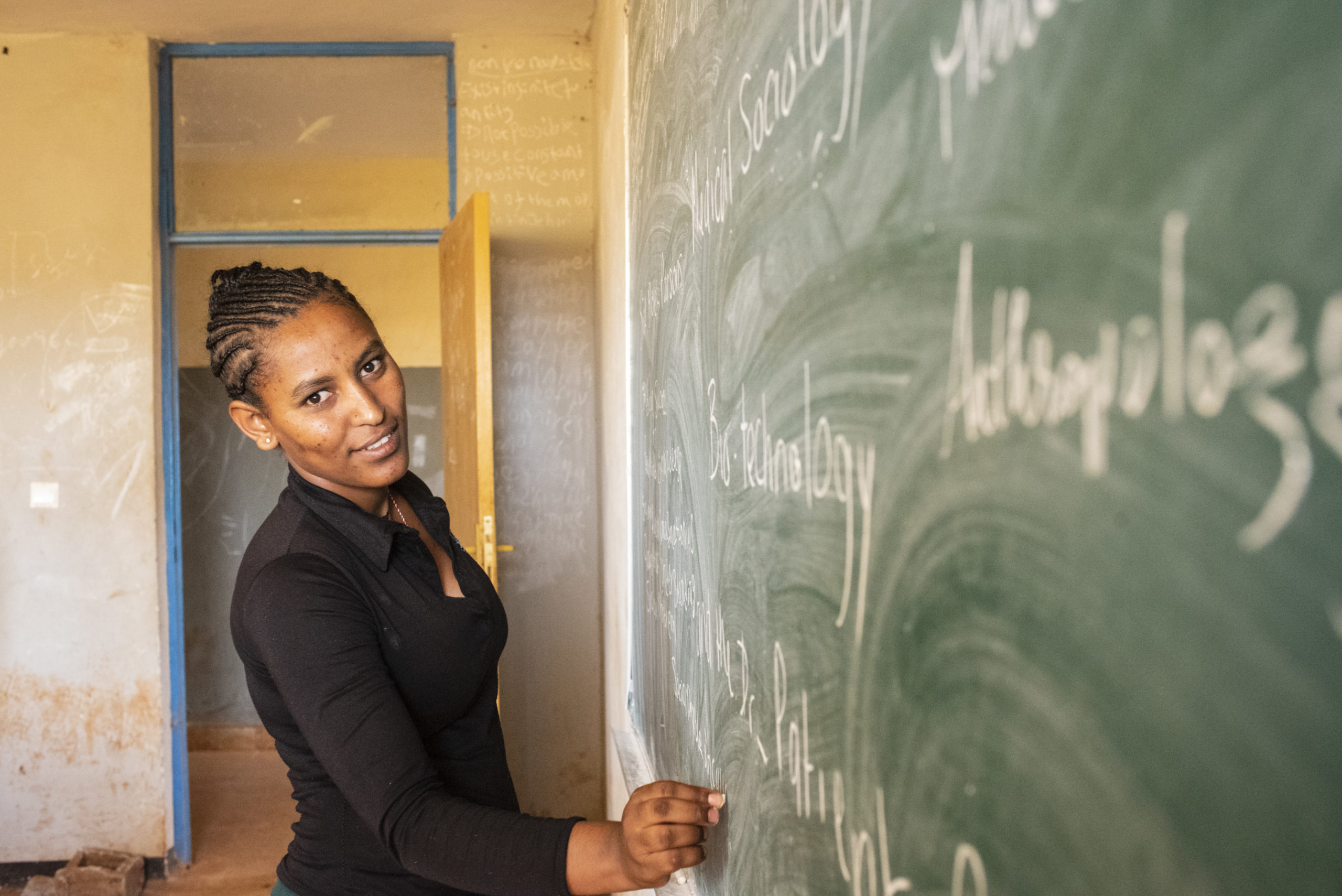Building a system for success in Ethiopia
Story

Although the number of girls enrolled in primary school in Ethiopia has more than doubled in the past 20 years, it still remains below 50 per cent of the population.
When it comes to secondary school, girls living in urban areas have an average education level of Grade 10. In rural communities, girls often drop out of school after Grade 8.
Only 27 per cent of students at the post-secondary level are women.
“Oftentimes girls don’t go to school because they need to help their families,” says Cuso International alumna Rebecca Gass. “Whether it’s cooking, washing, cleaning—running a home is very time-consuming and challenging. I was able to witness that firsthand.”
Through a new Cuso project in Ethiopia, girls’ access to education is getting a $12.9 million boost. U-Girls 2 is focused on addressing the barriers that impede adolescent girls’ access to education—such as being required to assist in domestic chores—and fostering community engagement and support towards the importance of girls’ schooling.
“The participants of this program aren’t just the girls who are enrolled but also the girls’ families, community members, boys in their classes, their teachers and the school administration. All girls can reap the benefits from the girls who attend this program,” says Rebecca, who provided research support for U-Girls 2 as a Communications Advisor for the Regional Health Bureau in Benishangul-Gumuz Region. “The whole idea is focused around this sense of community. It’s creating a support system for them to succeed.”
The project, funded by the Government of Canada and in partnership with the Institute of International Education, will enhance academic, social and soft skills for adolescent girls, including those with disabilities. They will receive academic resources, training and tutorials, and a financial stipend to allow them to focus on schoolwork. U-Girls 2 will also strengthen the capacity of teachers and schools to deliver quality and gender-sensitive education.
“Everyone should have equal access and equal opportunity to learn. When people focus on the education of young children, especially girls, they grow up having the drive and the self-assurance to stand up for themselves and each other,” says Rebecca. “I truly believe that it will make a big impact in this region.”